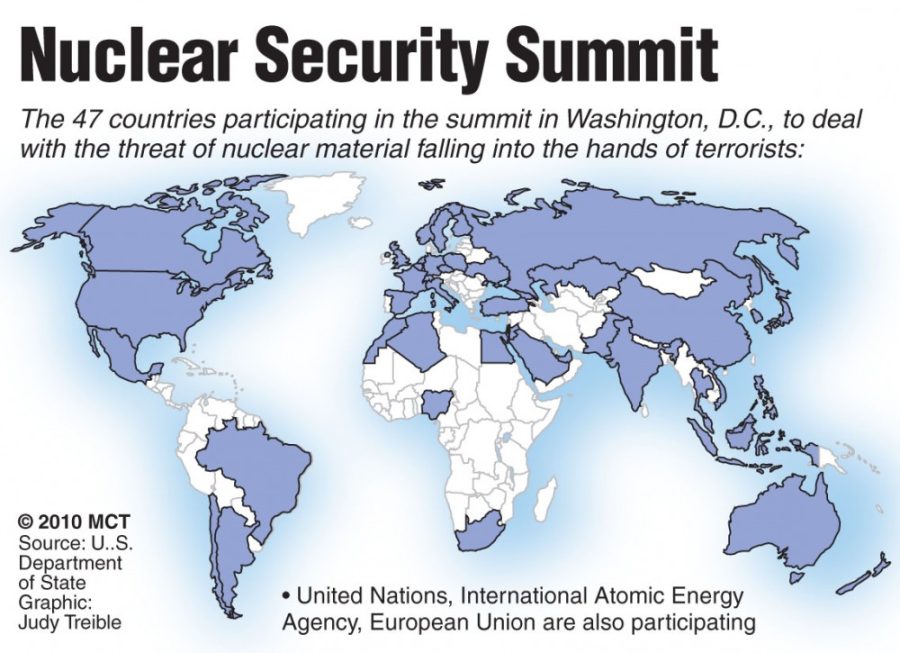Several nations agreed to dispose of weapons-grade uranium, end plutonium production, tighten port security and other voluntary steps. All participants endorsed Obama’s call to secure vulnerable nuclear materials in four years, and agreed to seek further cooperation even as they stopped short of any enforceable international agreement.
“”We have seized this opportunity,”” Obama said in a news conference closing the summit. As a result, he said, “”the American people will be safer, and the world will be more secure.””
Obama conceded that when it comes to enforcement, “”we’re relying on good will.””
The unanimous communique expressed support for security agreements “”that will not infringe upon the rights of States to develop and utilize nuclear energy for peaceful purposes and technology.”” Representatives of participating countries plan to reconvene in December for an update. Another leaders’ summit is planned for 2012 in
Despite the administration’s effort to keep the summit focused on the general theme of nuclear security rather than individual countries, critics were vocal about
The head of
Obama dodged a question about whether he would call specifically on
“”As far as
On another topic, when asked what international sanctions against
The gathering provided Obama an opportunity to recast how other nations see the U.S. on nuclear issues, in contrast to the Bush administration, whose strategy had included developing new nuclear weapons and expanding circumstances under which they could be used.
It also was a chance for Obama to show U.S. voters another side of him. The public’s impression of him could improve if they view him as effectively exerting leadership on the world stage. The summit featured imagery of Obama surrounded by nearly four dozen other world leaders at the largest international conference since the World War II era, and produced results.
“”This event has some political dimension to it above and beyond the actual content,”” said
More than 2,000 tons of plutonium and highly enriched uranium for civilian and military use are in dozens of countries, summit documents said, with 18 documented cases of theft or disappearance.
Obama said Tuesday that only an apple-sized amount of plutonium in the hands of terrorists could kill or injure hundreds of thousands of people. “”Terrorist networks such as
The president described “”a cruel irony of history”” two decades after the Cold War, in which “”the risk of a nuclear confrontation between nations has gone down, but the risk of nuclear attack has gone up.””
The nation of
“”
The summit produced a number of concrete agreements, including a decision by
The U.S. and
“”The initial combined amount, 68 metric tons, represents enough material for approximately 17,000 nuclear weapons,”” said a joint announcement of the agreement signed by Secretary of State
Russian President
Many nations don’t see the threat of nuclear terrorism with the same urgency as the U.S. does.
Yet, said
Securing bomb-grade nuclear materials from theft involves storing it inside high-security compounds protected by armed guards, gates and fences, closed-circuit TV systems and penetration-detection alarms.
Individual countries are responsible for ensuring that their fissile stocks are protected. There are no binding international standards for the transportation and storage of bomb-making materials, in part because some nations see such requirements as infringements on their sovereignty.
Even the U.S., with what are considered the world’s best-guarded nuclear weapons facilities, has had problems with security and accounting systems.
(









